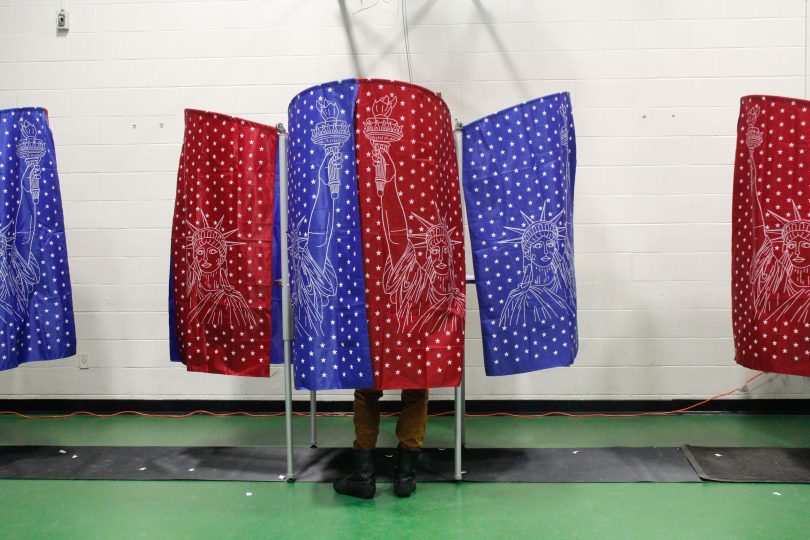By Hannah Green
BU News Service
BOSTON — In early June, officials at the Boston Election Commission were starting to worry. Only 800 poll workers were signed up to fill 1,800 positions across the city and the state primaries were only three months away.
Alex Psilakis, policy and communications manager at MassVOTE, a nonprofit working to increase voter participation, said the commission was frantically searching for poll workers to cover the deficit.
According to Psilakis, major recruiting efforts at the state and national level had flipped the odds since then. By late September, Boston had received more than 5,000 poll worker applications.
For a city that has historically received 2,000 to 2,200 applications, Psilakis said that Boston received way more applicants than it ever had and would ever need.
The unprecedented surge in city recruitments came just weeks after states across the country reported a shortage of poll workers at state primaries. In July, Maryland announced it was short 14,000 poll workers. Meanwhile, in Georgia, voters reported waiting up to three hours to cast their ballot in the September primary.
Rachael Cobb, chair of the political science and legal studies department at Suffolk University, has researched election administration, civic engagement, and political participation for years now. To her, the nationwide recruitment campaigns that emerged in response to staff shortages were highly successful.
“I really feel that there was a problem, and we solved it,” she said. Led by digital campaigns, recruitment organizations across the country are celebrating staggering numbers.
Power the Polls, a nonprofit organization that recruits low-risk poll workers, reported 500,000 sign-ups across the country. NBA star Lebron James’ nonprofit More Than A Vote and the NAACP Legal Defense and Educational Fund recruited 10,000 poll workers nationwide in just two weeks.
Cobb wasn’t surprised by the meteoric rise in numbers.
“There are a lot of things hitting home on so many fronts for so many people, that I don’t think you can help but have them more engaged,” she said. “From the student loan crisis, to the economic recession, to climate –– there’s just so many things that are impacting people’s daily lives and their pocketbooks. And those are the things that we already know propel people to be engaged in the first place.”
Back in August, MassVOTE said it was still looking to fill a number of positions that were traditionally staffed by seniors who were choosing to forgo volunteering over concerns of COVID-19.
“What we also see across the country is that a lot of poll workers drop out at the last second,” Psilakis said. “They’re worried about the virus, which is completely understandable, so you want to have a couple extra hundred lined up.”
“So a couple extra thousand? Even better,” he said.
“The sense we are getting right now is that everyone is doing okay,” Psilakis said. “All the talk [of recruitment] going on at the national level and state level has really motivated people.”
MassVOTE reported sufficient staffing at statewide polling locations, with the exceptions of some specific translator positions at different sites, such as Spanish speakers in Chelsea and Khmer and Spanish translators in Lowell, according to Psilakis.
It certainly motivated Natalie Hill, 20, who first saw a recruitment post on her friend’s Instagram story after the state primaries. “There was a lot on social media about the shortage of poll workers,” she said.
After clicking onto the recruiting website and entering her zip code at Northeastern University, she learned that Boston was still accepting volunteers.
That she was a resident of Virginia and not Massachusetts did not matter thanks to recent changes in the Massachusetts poll worker requirements, which said volunteers were no longer required to be state residents or registered voters.
Volunteering, she said, felt like an opportunity to make a difference in this election. “A lot of people feel like their vote isn’t enough to make a difference. I just want to give it my all,” she said. “I wanted to make it easier for people in the line that day and eliminate confusion.”





